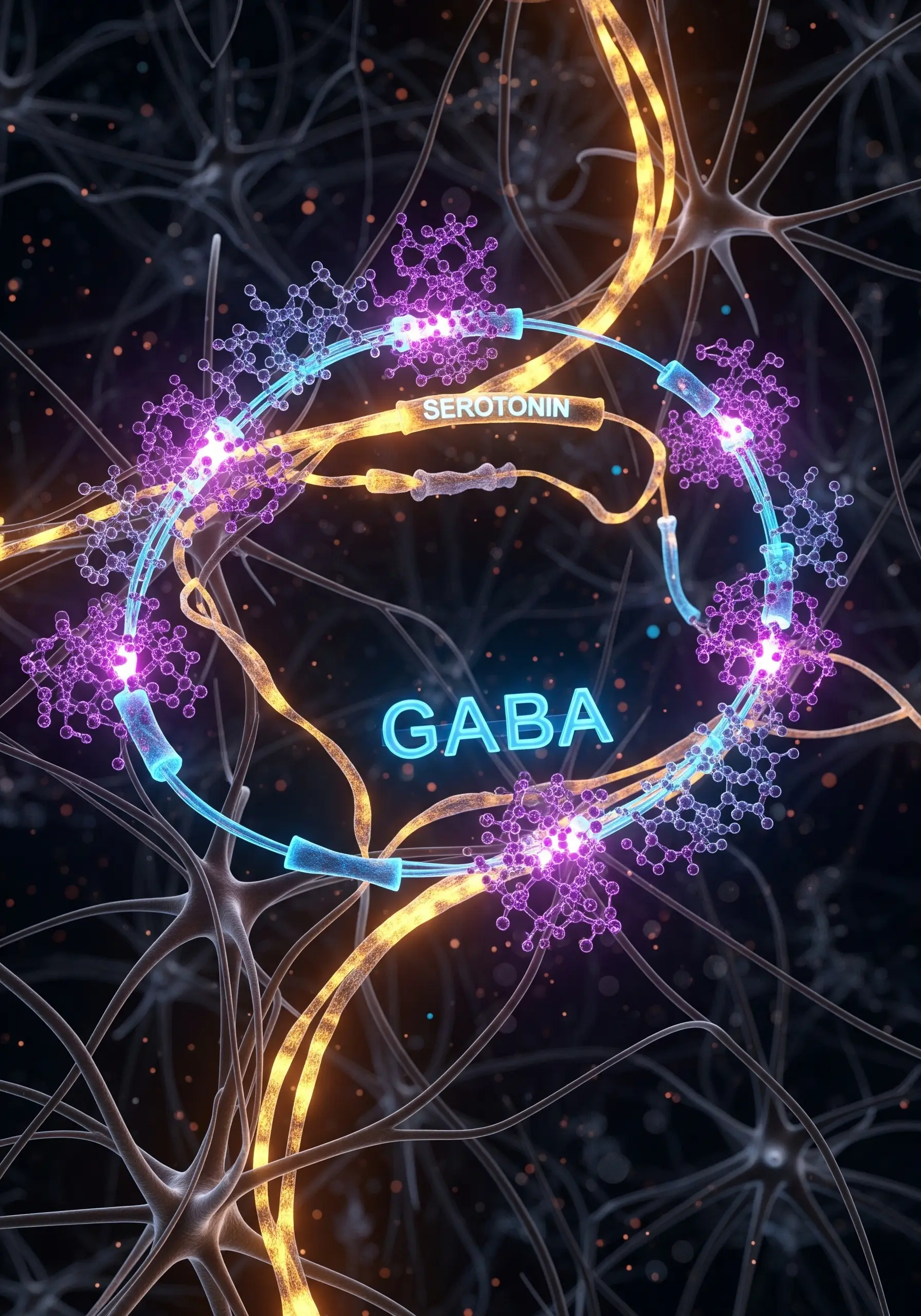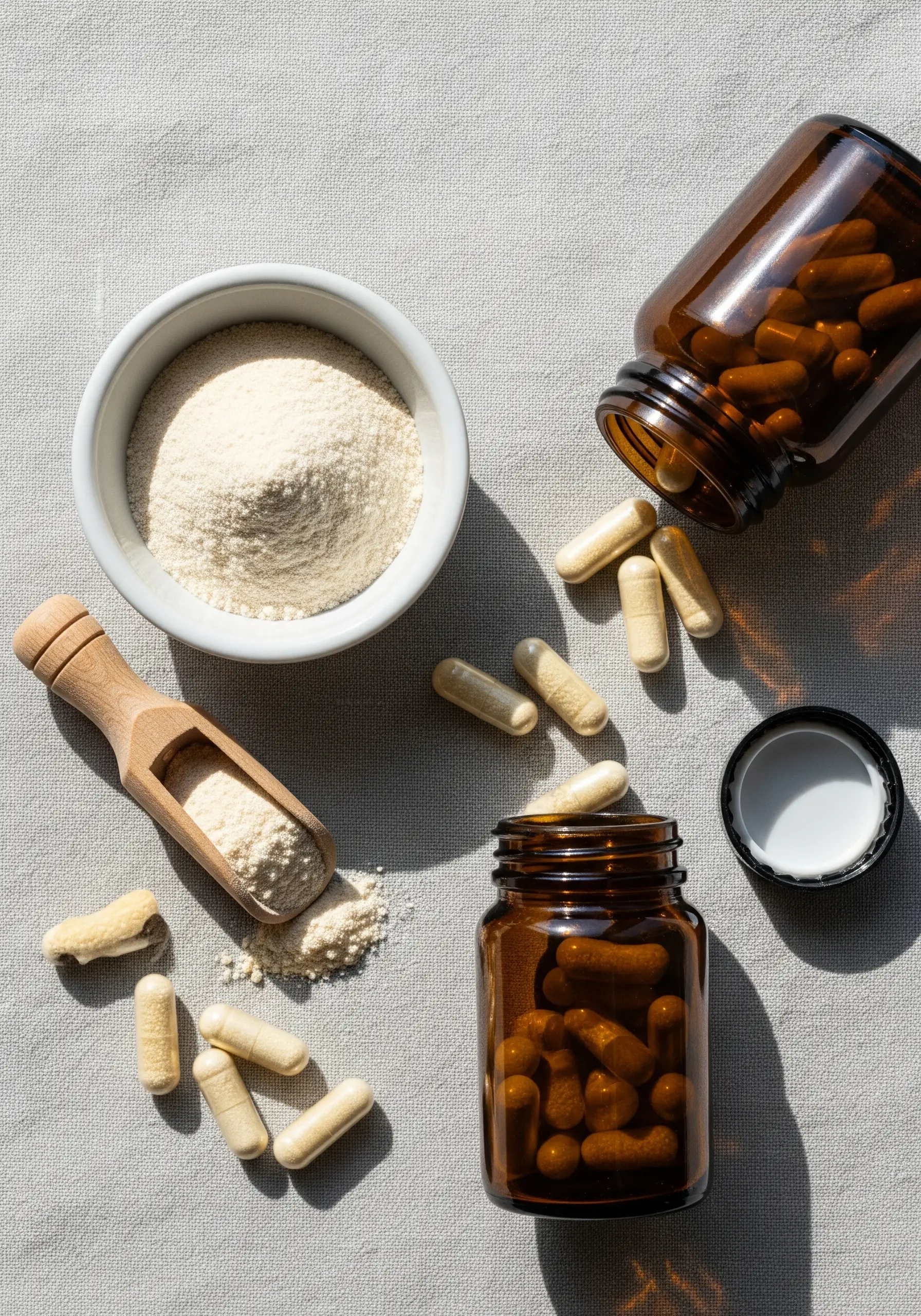

How the “calm molecule” supports the nervous system, hormonal balance, and sleep.
Introduction
November is a month when most people experience emotional fatigue, anxiety, sleep disturbances, and mood swings.
The reason is not only the lack of daylight. The nervous system consumes more energy, and the balance of neurotransmitters changes.
One of the nutrients that helps gently stabilize these processes is inositol (vitamin B8).

Inositol has long been known in reproductive medicine as a tool for supporting fertility and hormonal balance. But new research shows: it also plays a key role in brain function, serotonin regulation, dopamine balance, and stress response.
What Inositol Is and How It Works
Inositol is not a classical vitamin but rather a vitamin-like compound that is part of cell membranes and participates in nerve signal transmission.
Its active forms are myo-inositol and D-chiro-inositol.
Main mechanisms of action:
-
participates in the synthesis of phosphatidylinositol — a component of neuronal membranes;
-
regulates the function of serotonin receptors (5-HT2A);
-
enhances insulin sensitivity and helps control blood sugar levels;
-
reduces activity of the hypothalamic-pituitary-adrenal axis, meaning it calms the stress response.

Table 1. Main biological functions of inositol
| System | Function | Clinical Effect |
|---|---|---|
| Nervous | Increases serotonin and GABA activity | Less anxiety, better sleep onset |
| Endocrine | Improves insulin sensitivity | Hormonal balance, fewer breakouts |
| Reproductive | Normalizes ovulation (PCOS) | Supports fertility |
| Cardiovascular | Reduces triglyceride levels | Helps prevent metabolic syndrome |
In the study Frontiers in Psychiatry (2024) inositol at 2–4 g/day reduced anxiety by 35% in patients with seasonal depressive symptoms.
In another study (Reproductive Biology, 2025), the combination of myo-inositol with magnesium improved sleep quality and lowered cortisol by 22%.

Inositol and Seasonal Mood
Inositol acts on the same pathways as SSRI antidepressants, but naturally.
It restores serotonin receptor sensitivity, allowing the body to better respond to its own serotonin without medication.
As a result — a more stable mood, less anxiety, fewer nighttime awakenings.
In combination with magnesium and vitamin D3, inositol forms a natural “autumn anti-stress” formula.
Table 2. Practical combinations of inositol
| Goal | Combination | Expected Effect |
|---|---|---|
| Support for autumn mood | Inositol + Mg + D3 | Reduced anxiety, improved sleep |
| PCOS and hormonal balance | Myo-inositol + D-chiro-inositol (40:1) | Restored ovulation, reduced acne |
| Metabolic support | Inositol + berberine + chromium | Improved insulin sensitivity |
| Stress and “emotional burnout” | Inositol + B-complex + L-theanine | Improved focus, calm |

How to Take It
-
Optimal dose: 2–4 g/day (myo-inositol).
-
Course: 6–8 weeks, preventively in autumn and winter.
-
Forms: powder or capsules, dissolves well in water.
-
Best time: in the evening or before bed to enhance relaxation.
FAQ
1. Does inositol help with insomnia?
Yes, it increases GABA levels — the main inhibitory neurotransmitter, so sleep becomes deeper.
2. Can inositol be taken together with antidepressants?
Yes, but only under a doctor’s supervision — inositol may enhance the effect of SSRIs.
3. Does inositol affect appetite?
Yes, it normalizes blood sugar levels and reduces sugar cravings.
4. Which type of inositol should I choose?
For mood and stress — myo-inositol; for hormonal balance — a combination of myo + D-chiro (40:1).
5. Are there any side effects?
Rarely, only mild bloating or nausea at high doses above 12 g/day.
Conclusions
Inositol is a vitamin of balance that supports both the brain and the hormonal system.
In November, when emotional resilience decreases, it helps maintain calmness, clarity, and a good mood without stimulants.
Its effect is not fast but profound: after 2–4 weeks the body feels harmony, and thoughts become lighter.
References
-
Levine, J. Frontiers in Psychiatry, 2024 — “Inositol in anxiety and mood regulation.”
-
Monastra, G. et al. Reproductive Biology, 2025 — “Myo-inositol and magnesium: effects on cortisol and sleep.”
-
Croze, M. L. Nutrients, 2024 — “Inositol and insulin signaling pathways.”
-
EFSA, 2025 — “Safety evaluation of myo-inositol supplements.”
-
Wu, L. Clinical Endocrinology, 2024 — “Inositol and hormonal regulation in PCOS.”




